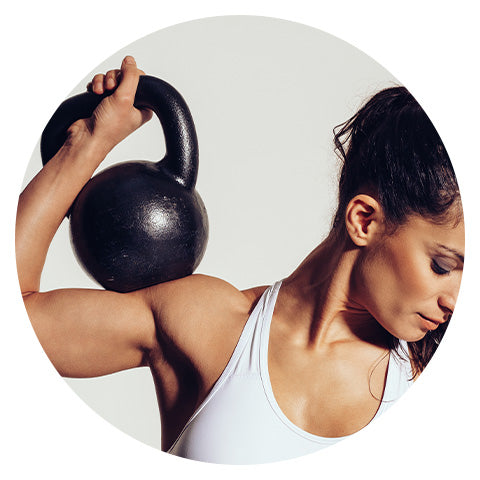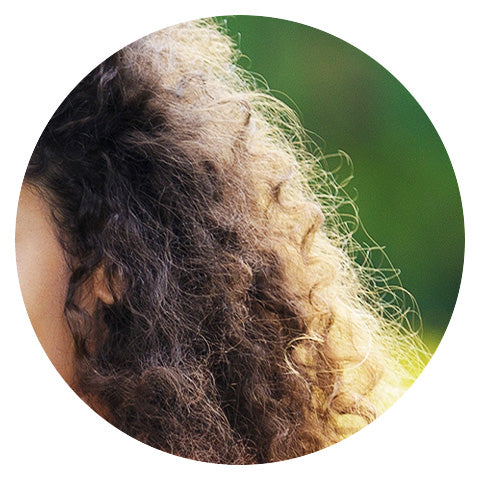Ask Gail & Dr. Joe: How Often Should You Wash Your Hair?
You've probably heard conflicting advice about how often you should wash your hair.
Some say daily washing is a must for scalp health, while others warn that over-washing can strip essential oils. So, what’s the real answer?
To clear things up, we asked Gail Federici, our founder, and Dr. Joe Cincotta, our Chief Chemist, to share their expert insights.
Should You Wash Your Hair Every Day?
The answer depends on several factors, including hair type, scalp condition, and lifestyle. Some people need daily shampooing, while others can go several days without washing.
This is what our founder, Gail Federici, has to say about the matter:

The key is to keep the scalp clean. So if that requires daily shampooing, that's fine.
It won't harm the hair. If your hair is dry, then most likely fewer washes will do.
We’ve outlined some of the factors that may influence how often you should wash your hair below:
1. Hair Type & Oil Production

-
If you have an oily scalp, you might need to wash your hair daily or every other day to prevent excess grease.
-
Those with dry or curly hair should shampoo less frequently to maintain natural moisture levels.
-
Fine hair tends to get greasy faster, so you may need to wash it more often.
2. Active Lifestyle & Environmental Factors

- If you live an active lifestyle or are regularly exposed to pollutants, these factors can also affect how often you should wash your hair.
- If you’re an athlete, gym-goer or regularly engage in sweat-producing activities or have a job that exposes your hair to dust and pollutants, you may need to wash it more frequently to maintain scalp health.
3. Climate & Humidity

- The climate definitely impacts your hair washing needs. In humid environments, hair tends to get frizzy and greasy more quickly, requiring more frequent washing.
- Dry climates tend to dehydrate hair which can make it brittle and prone to breakage, requiring less frequent washing and more focus on moisturizing and hydrating treatments.
What Happens If You Don’t Wash Your Hair Regularly?
Not washing your hair often enough can cause:
- ✔️ Sebum, sweat, and dead skin cell buildup
- ✔️ Itchy, flaky scalp and potential dandruff
- ✔️ Hair thinning or hair loss due to clogged follicles
 “Not washing hair regularly will lead to buildup of sebum, dead skin cells, grime, bacteria, fungus, salts (from sweat) and hair product residues on the scalp,” according to Color Wow Chemist, Dr. Joe Cincotta, Ph.D.
“Not washing hair regularly will lead to buildup of sebum, dead skin cells, grime, bacteria, fungus, salts (from sweat) and hair product residues on the scalp,” according to Color Wow Chemist, Dr. Joe Cincotta, Ph.D.
“This buildup will lead to irritation, inflammation, even possible hair loss. I recommend that hair and scalp should be cleansed at least once a week. Having a healthy scalp is essential to having a lifetime of healthy hair!”
Beyond basic hygiene, not washing your hair regularly can also impact its appearance. Over time, the accumulation of dirt and oil can make your hair look dull, flat, and lifeless.
It may also affect the effectiveness of hair styling products, as they may not be able to penetrate through the buildup to provide the desired styling results.
Choosing the Right Shampoo for Your Routine
It's critical that the shampoo you use does not contain ingredients that will not easily rinse off.
Unfortunately, most shampoos do contain ingredients like silicones, conditioning agents, thickening resins, etc. that coat the hair and scalp, which not only dulls, hair and weighs it down, but, much worse, can even block follicles and impede new hair growth.
“Unfortunately, these ingredients also build up on your scalp. Ingredient buildup on scalp traps bacteria, dead skin cells, sebum, grime … which leads to scalp irritation, infection and possible hair loss.”

This is why Dr. Joe strongly recommends one of our 100% clean, residue-free shampoos: Color Wow Color Security Shampoo or Curl Wow Hooked Shampoo.
Our advanced sulfate-free cleansers are the first formulations to ban these potentially harmful and totally unnecessary ingredients:
-
NO sulfates
- NO silicones
- NO thickening agents
- NO conditioning agents
- NO pearlizing agents
- NO oils
These ingredients have nothing to do with cleaning; in fact, because they don’t rinse away, they leave the hair feeling “coated” and “dirty”. For a truly clean, fresh scalp, it’s essential to use a no-residue shampoo.
Pro Tips for Optimal Hair Washing
✨ Follow These Best Practices for Healthy, Vibrant Hair:
- ✔️ Use lukewarm water instead of hot water to prevent dryness.
- ✔️ Massage your scalp gently to remove buildup and promote circulation.
- ✔️ Use a lightweight, non-coating conditioner to keep hair hydrated without buildup.
- ✔️ Avoid applying conditioner to your scalp; focus on your mid-lengths and ends.
For more advice on how to properly wash your hair, take a look at our guide.
There’s no one-size-fits-all rule. Your hair type, lifestyle, and environment determine your ideal wash frequency. The key is scalp health—keeping it clean without stripping essential oils.
Still unsure? Explore our expert guides and product recommendations to find your perfect hair care routine.
💡 Explore More Hair Care Insights









